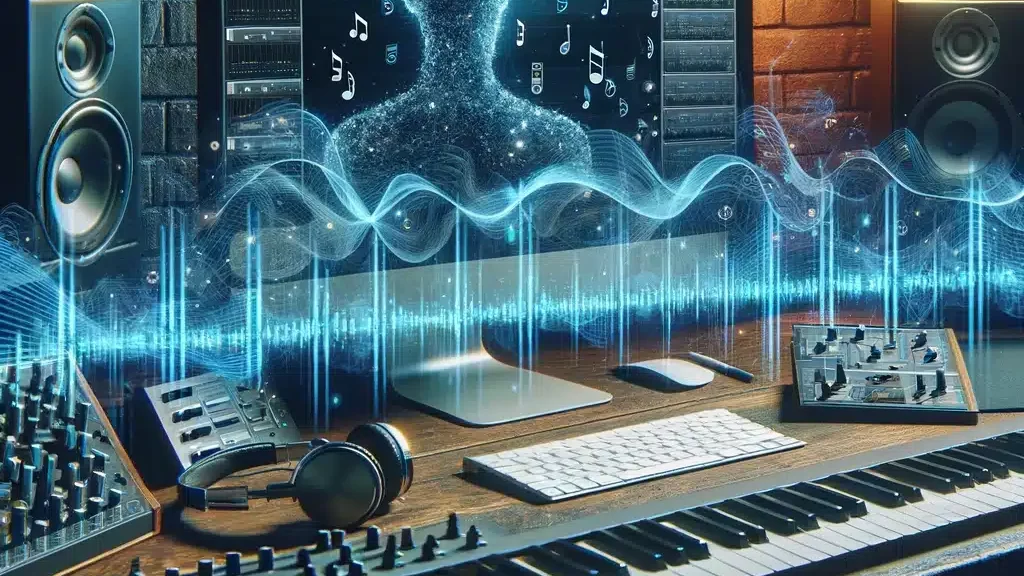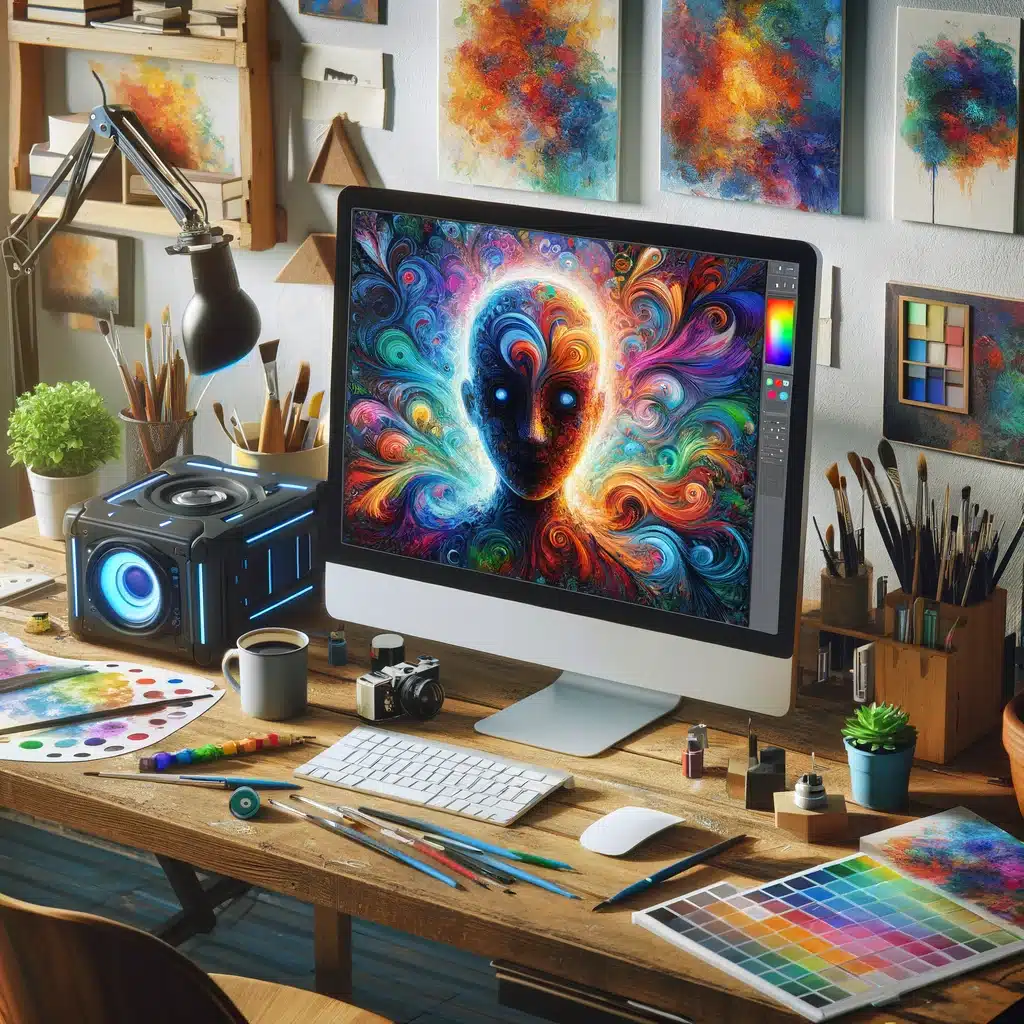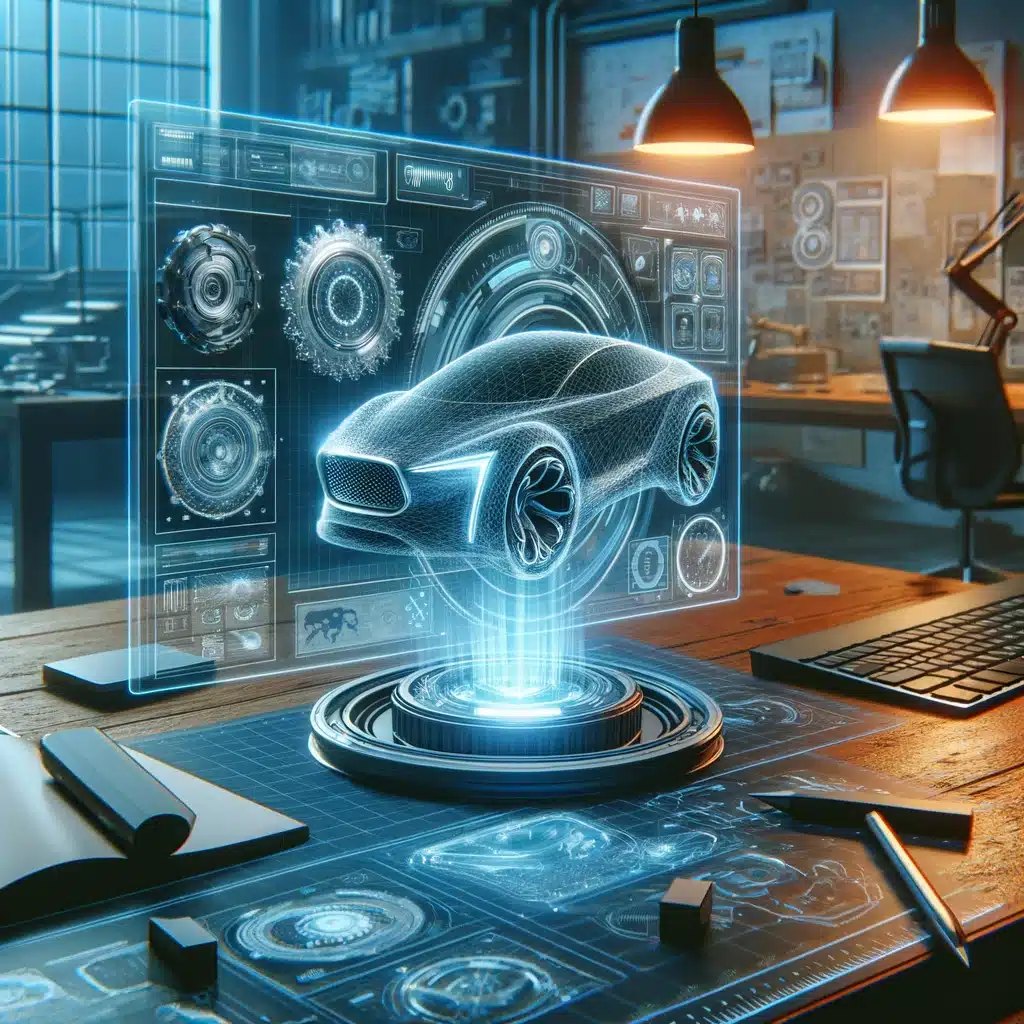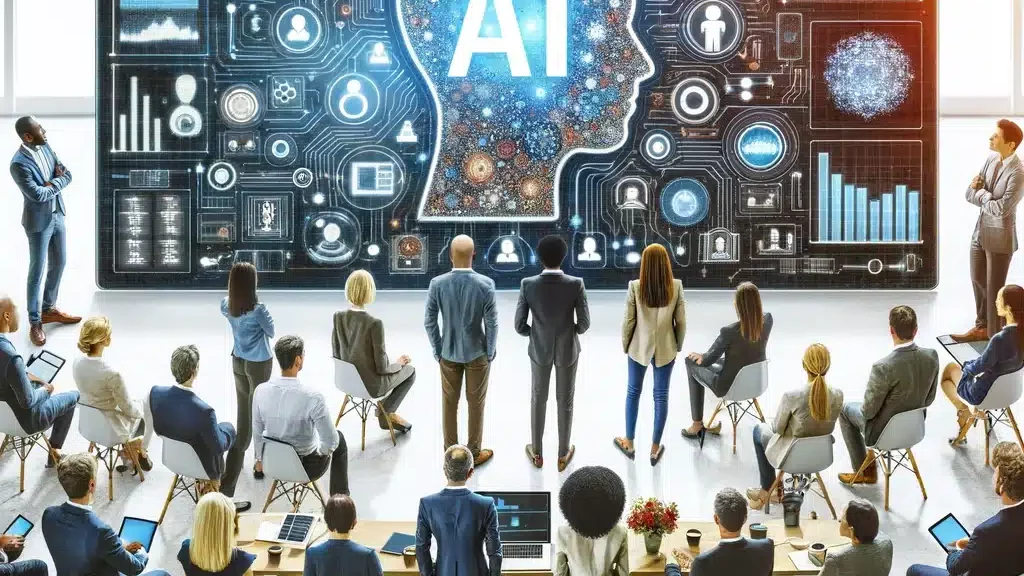Generative AI stands as a pinnacle of advancement in artificial intelligence, specifically focusing on the generation of new and unique content. This technology employs sophisticated machine learning models to emulate human creativity across various formats. In this comprehensive examination of generative AI, we will explore its foundational mechanisms, its broad applications across different industries, the challenges it presents, the ethical questions it raises, and its future prospects.
Deep Dive into the Mechanisms of GAI
Generative AI functions through cutting-edge algorithms, predominantly Generative Adversarial Networks (GANs) and Variational Autoencoders (VAEs). These models are trained on extensive datasets, enabling them to learn and replicate the intricate patterns, styles, and structures of the data.
- Generative Adversarial Networks (GANs): Consisting of two components—the generator and the discriminator—GANs create an environment where both elements continually challenge each other. The generator produces outputs, and the discriminator evaluates them. This rivalry drives the generator to enhance its capabilities, progressively improving the quality and realism of its outputs.
- Variational Autoencoders (VAEs): VAEs compress data into a compact representation, which is then used to reconstruct new data points. They are particularly effective in generating complex data structures, such as detailed images or human-like voices.
Extensive Applications of Generative AI
The adaptability of generative AI enables its integration into various sectors, significantly enhancing creativity and operational efficiency:
- Creative Arts: Artists and designers utilize generative AI to push the boundaries of visual and performative arts, exploring novel artistic territories and forms.
- Business Innovations: In the corporate world, generative AI streamlines processes by generating code for software development and innovating dynamic marketing strategies.
- Healthcare Enhancements: AI-generated models and simulations not only train healthcare professionals but also support complex diagnostic and surgical procedures.
- Entertainment and Media: In entertainment, generative AI scripts engaging narratives for video games and movies, creates immersive digital experiences, and even composes intricate pieces of music.
Addressing Challenges and Ethical Concerns
With the rise of generative AI, significant challenges and ethical questions emerge that require thorough examination and proactive management:
- Bias and Fairness: AI systems can inherit biases from their training data, potentially leading to unfair or skewed outcomes in the content they generate.
- Intellectual Property: The determination of ownership over AI-generated content involves complex legal and ethical considerations, as it challenges traditional notions of creativity and authorship.
- Privacy Issues: The capability of generative AI to produce highly realistic simulations raises substantial concerns about the misuse of personal data and potential breaches of privacy.
The Need for Regulatory and Ethical Frameworks
As generative AI continues to evolve, there is an increasing necessity for robust ethical guidelines and regulatory frameworks to ensure its responsible development and application:
- Developing Ethical Guidelines: It is crucial for global stakeholders to collaborate on establishing ethical standards that govern the use of AI technologies.
- Implementing Regulatory Frameworks: Governments and regulatory bodies must formulate and enforce policies that address the multifaceted issues posed by AI, including concerns related to privacy, security, and ethical usage.
Looking Toward the Future of Generative AI
The prospects for GAI are promising, with ongoing advancements expected to enhance its capabilities further:
- Enhanced Creativity: Future iterations of generative AI are anticipated to produce more sophisticated and nuanced outputs, which may closely resemble or even surpass human levels of creativity.
- Broader Adoption: As generative AI becomes more accessible and its applications expand, it is poised to become a fundamental component in numerous additional sectors.
- Impact on Employment: The integration of AI into diverse industries is likely to redefine job roles and spawn new career opportunities, emphasizing the need for a workforce that is adaptable and continuously learning.
In summary, generative AI is not merely a technological innovation but a key driver of transformation across multiple industries. Its capacity to convert data into meaningful, creative, and utilitarian outputs positions it as an invaluable asset in our digital age. As we navigate its vast potentials and address its challenges, our collective aim should be to utilize this powerful tool responsibly and ethically, ensuring that it serves the broader interests of society. If you are interested in more reading, Wikipedia is a great start. We, at TNation, do not think AI will replace all the humans, we choose to believe it will help all the humans.
From the author’s point of view
As a software developer with a career spanning the entire spectrum of application development—from database modeling to frontend design and everything in between—I have witnessed firsthand the monumental shift that technologies, especially Generative AI, have brought to the landscape of software development.
Throughout my career, which began as a one-man band, I handled every aspect of application development. This included the intricacies of backend programming, the aesthetic challenges of UI/UX design, the precision of database structuring, and even the meticulous task of testing and debugging. Each phase not only demanded a unique skill set but also a significant investment of time and mental energy. However, the advent of Generative AI has begun to redefine this multifaceted workload, easing the burdens that once seemed an inescapable part of a developer’s life.
Generative AI, with its capability to automate and innovate, has been a game-changer for me. In the realm of design, AI tools can now generate user interface components and visual elements. What used to take hours of painstaking work, experimenting with color schemes and layout adjustments, can now be accomplished in minutes with AI providing suggestions that are both aesthetically pleasing and functionally effective. This not only speeds up the design process but also enhances creativity, allowing me to experiment with designs I might not have considered otherwise.
Moreover, in the testing phase, AI-driven testing tools have revolutionized the way I approach bug fixes and feature testing. These tools can predict where bugs are most likely to occur and automate repetitive testing processes, ensuring a thorough examination of new and existing features while reducing the manual effort required.
Generative AI has not just streamlined processes but also introduced a new era of collaboration. It serves as a virtual team member, filling the gaps that were once challenging for a solo developer to manage alone. It’s akin to having a silent partner who is always available, highly knowledgeable, and endlessly capable of handling a significant portion of the workload.
Embracing Generative AI has allowed me to be more productive, innovative, and focused. It’s exciting to think about what the future holds as these technologies continue to evolve. As a developer who started with every role under my hat, I see Generative AI not as a replacement but as a powerful tool that enhances human capabilities, making the impossible possible and the possible easier. I am eager to see how further advancements in AI will continue to transform the landscape of software development. And, NO, I do not think we would not need designers any more, just we do not have to wait for them so long as we did in the last 2 decades 😈.





